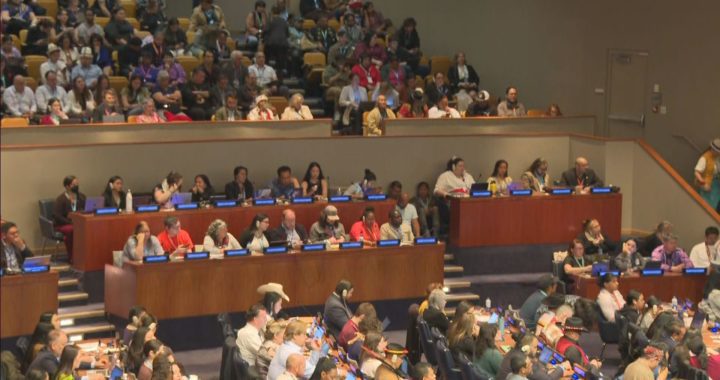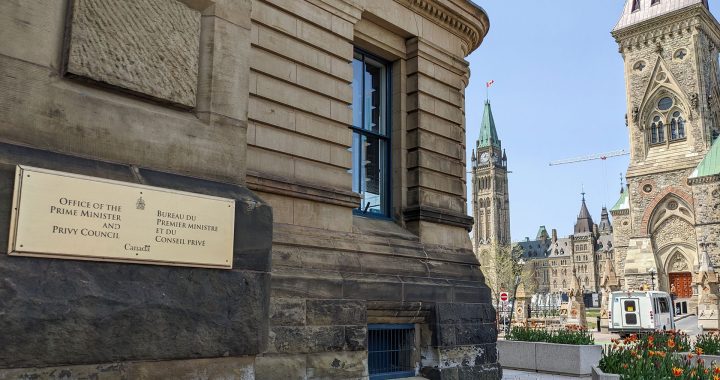Tribunal: Strahl, department treated FNs entrepreneurs like “children”
Former Indian affairs minister Chuck Strahl and officials in his department treated two members of the Okanagan Indian band like “children” by second-guessing their ability to make business decisions, the Canadian Human Rights Tribunal has found.
By Jorge Barrera
APTN National News
OTTAWA-Former Indian affairs minister Chuck Strahl and officials in his department treated two members of the Okanagan Indian band like “children” by second-guessing their ability to make business decisions, the Canadian Human Rights Tribunal has found.
In a landmark ruling, the tribunal found that Strahl and officials from the department’s British Columbia regional office breached the human rights of two Oakanagan Indian band members when it prevented James Louie from leasing his on-reserve property to Joyce Beattie for $1.
The tribunal found that Strahl and department officials overstepped their authority under a section of the Indian Act governing the leasing of reserve lands and discriminated against the two band members based on race.
The decision, should it stand, effectively shuts the department out of interfering in leasing arrangements of reserve lands, as long as the band supports it and does not involved a minor or a “mentally incompetent” individual.
A spokeswoman for Indian Affairs said officials were reviewing the decision and the department could not immediately comment.
Louie and Beattie could not be immediately reached for comment.
The ruling is sure to have wider ramifications over how Indian Affairs interprets the Indian Act in its dealings with First Nations bands and individuals.
The department has 30 days from Jan. 26 date of the ruling to appeal it in Federal Court.
The decision, written by tribunal member Wallace Gilby Craig, criticized every department official involved in the file all the way up to Strahl, who backed the department in a strongly worded letter to Louie.
“(The department’s) paternalistic conduct toward Mr. Louie was unequivocally endorsed and supported by then minister Chuck Strahl,” wrote Craig. “The minister’s letter exacerbated (the department’s) discriminatory treatment of the complainants.”
The ruling is the first of its kind since the 2008 passage of a government bill making the Human Rights Act apply on reserves.
After the bill received Royal Assent, Strahl issued a statement on June 18, 2008, proclaiming it marked a “significant turning point” in the relationship between First Nations and the government.
Craig noted that a month earlier, Strahl had written a letter essentially supporting the violation of Louie’s human rights by the department.
“Little more than a month after writing to Mr. Louie (Strahl) announced that legislation extending human rights protections to all First Nations communities had received Royal Assent,” wrote Craig. “The announcement, however, had no apparent effect on (the department’s) position…nothing changed.”
The case was triggered by a human rights complaint launched by Louie and Beattie after the department obstructed their business plans to build and sell a house on the reserve.
In 2007, Louie agreed to lease his property to Beattie for $1 for 49 years. Beattie would then build a house for resale and the profits would be split between Louie and Beattie.
Louie owned the property through a certificate of possession, which is the standard arrangement for on-reserve lands which are technically in the hands of the federal Crown.
Under the Indian Act, however, Louie needed a ministerial release to lease his property, but the department refused to sign off saying the $1 rate did not reflect the existing market value. The department wanted Louie to have the land assessed and obtain legal counsel.
Louie, who had band council backing for the business deal, told the department in a Sept. 1, 2007 letter, that he had no plans to change the lease rate. He said he would provide the department with any release of liability.
“Please be advised that rent to be paid under the proposed lease is not a matter which is open for reconsideration,” Louie wrote. “Neither of us has any intention of allowing your officials to interfere in that regard.”
Department officials, however, would not be swayed, and they refused to sign off.
After exchanging several letters with officials up the regional office’s hierarchy, Louie finally turned to Strahl and sent him a March 19, 2008, letter explaining the situation.
“I consider myself fully capable of independently manage my own private business and financial affairs,” wrote Louie, a businessman who also worked 25 years for the band administration.” Over the last decade I have acquired several parcels of (on-reserve) undeveloped land… under … certificates of possession. My long term goal is to have those parcels develop for economic benefit.”
Strahl, however, rejected Louie’s request for intervention, writing back that, under the Indian Act, Canada had “unilateral authority” to set lease rates for on-reserve lands.
“The…minister was mistaken,” wrote Craig, who found that Strahl’s position of unilateral authority actually undercut the Indian Act section governing leases “which is intended to facilitate the leasing of land by individual Indian land owners who envision a benefit for themselves.”
Philippe Dufrense, director of litigation for the Human Rights Commission, said the tribunal found that department officials and the minister drew too much authority from their interpretation of the Indian Act and contravened the Human Rights Act.
“The department’s interpretation had, as a consequence, that Aboriginals who wanted to lease land were not treated like adults, they were second-guessed or given protection like children are given,” he said.
The tribunal ordered the department to grant the lease release application and overhaul its policies and regulations around leasing within the next six months.
The tribunal said it would monitor the issue for the next nine months.









